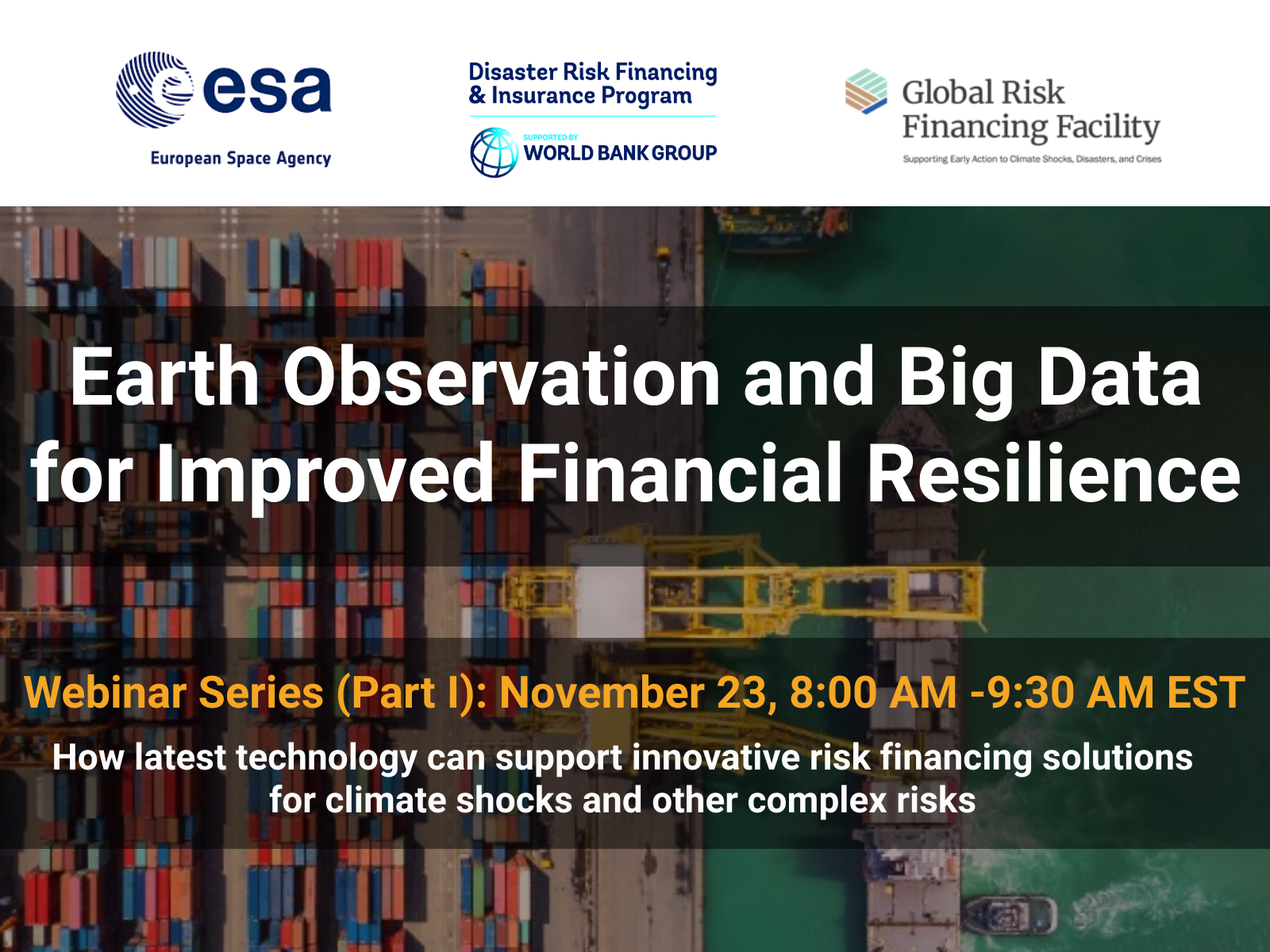Earth Observation and Big Data for Improved Financial Resilience

Background
Every day, the surface of our planet is monitored by hundreds of satellites operating at different altitudes, frequencies, registering changes related to crop growth, land use, soil moisture, floods, and complemented by a host of social/online/news media datasets.
The current Covid crisis highlights how supply chains are increasingly globalizing and becoming more complex. At the same time, climate change threatens our societies and economies. Satellite and big data are very powerful means to provide additional risk information to this picture, complementing or in some cases replacing traditional risk indicators, with new, global coverage, informing on severity and extent of impacts and shocks.
But how to produce the right, meaningful and timely information when it comes to addressing financial risks? Can satellite tech help us keep track of global supply chains?
From the standard applications (e.g. tracking deforestation and environmental risk) to the most recent demand (e.g. credit risk assessments for smallholder farmers exposed to climate change and other disruptive events), the webinar will discuss the state-of-play, current pilots and most promising applications. It will cover a wide range of sectors and use cases, from financial assets mapping to economic activity monitoring and including climate and complex risk modeling.
This first webinar will discuss opportunities and challenges related to earth observation and big data in the context of disaster risk financing, decision-support, anticipatory action, sector-specific loss assessment, and loss transmission channels. Solutions, such as systemic risk modeling or convergence of evidence methods, will be discussed with a focus on isolated risks (e.g. flood risk) and compound risks (e.g. COVID19 vs. extreme climate).
The webinar series is jointly organized by the World Bank Group's Finance, Competitiveness & Innovation Global Practice, together with the European Space Agency’s Center for Earth Observation (ESRIN).
Time
November 23, 2020, 8:00AM -9:30 AM EST
Link
Registration and Webinar Connection Link
Presentation Slides
Relevant Resources: Satellite Data for Climate, Crisis and Disaster Risk Finance